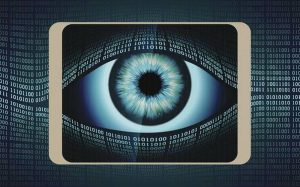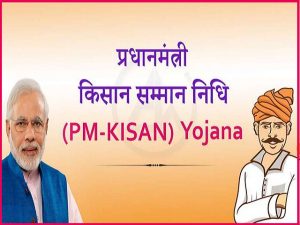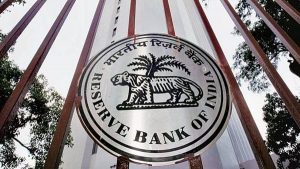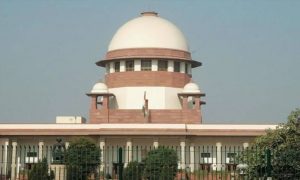Today Current Affairs: 24th July 2021 for UPSC IAS exams, State PSC exams, SSC CGL, State SSC, RRB, Railways, Banking Exam & IBPS, etc
Table of Contents
The Gaon Buras:

The Assam Cabinet announced that Gaon Buras, village-level functionaries of the district administration, will be called ‘Gaon Pradhans’.
- The government has reasoned that a number of young men (and women) become Gaon Buras, and thus, the word ‘Bura’ (meaning old in Assamese) is no longer appropriate.
- Gaon Buras are the village headmen.
- They are the eyes, nose, ear of the district administration at the village level.
- There are about 6,000 Gaon Buras in Assam. Women ‘Gaon Buras’ are not very common and they take over, if their husbands die.
- It belongs to the colonial era, when the British appointed the oldest person in the village as the head, who would oversee matters relating to land and revenue in a particular area.
- Post-independence, the government continued with the institution and made the Gaon Bura a formal part of the Assam Revenue and Disaster Management department, increasing his responsibilities, and eventually introducing a small honorarium for the role.
- In Arunachal Pradesh, too, the Gaon Buras (and Buris) are the most important village-level functionaries.
‘Dying Declaration’:

A special CBI court on July 16 convicted two policemen and awarded them life sentences for the custodial death of a murder accused, who was burnt alive inside a police station in Karnal.
- The judgment relied heavily on the ‘dying declaration’ made by the victim prior to his death.
- The law presumes that no person will meet their maker with a lie in their mouth. So Section 32 of the Indian Evidence Act, 1872 deals with cases in which statement of relevant fact is made by a person who is dead or cannot be found.
- The general rule under Section 60 of the Act is that all oral evidence must be direct — he heard it, saw it or perceived it.
- The grounds of admission under a dying declaration have been based on two broad rules —
- one, the victim being generally the only principal eye-witness to the crime; and
- two, the sense of impending death, which creates a sanction equal to the obligation of an oath.
Essential Defence Services Bill, 2021:

The government introduced the Essential Defence Services Bill, 2021 in Lok Sabha.
- It seeks to replace the ordinance issued in June 2021 and prohibits any agitation and strike by anyone engaged in the essential defence services.
Essential Defence Services:
- It includes any service in any establishment or undertaking dealing with production of goods or equipment required for defence related purposes or any establishment of the armed forces or connected with them or defence.
- It also includes services that, if ceased, would affect the safety of the establishment engaged in such services or its employees.
- In addition, the government may declare any service as an essential defence service if its cessation would affect the:
- Production of defence equipment or goods.
- Operation or maintenance of industrial establishments or units engaged in such production.
- Repair or maintenance of products connected with defence.
The laws For Surveillance In India:

In response to the finding by a global collaborative investigative project that Israeli spyware Pegasus was used to target at least 300 individuals in India, the government has claimed that all interception in India takes place lawfully.
- Communication surveillance in India takes place primarily under two laws — the Telegraph Act, 1885 and the Information Technology Act, 2000.
- While the Telegraph Act deals with interception of calls, the IT Act was enacted to deal with surveillance of all electronic communication, following the Supreme Court’s intervention in 1996.
- In Public Union for Civil Liberties v Union of India (1996), the Supreme Court pointed out lack of procedural safeguards in the provisions of the Telegraph Act and laid down certain guidelines for interceptions.
- Among the guidelines issued by the court were setting up a review committee that can look into authorisations made under Section 5(2) of the Telegraph Act.
- The Supreme Court’s guidelines formed the basis of introducing Rule 419A in the Telegraph Rules in 2007 and later in the rules prescribed under the IT Act in 2009.
Nord Stream 2 Pipeline:

The US, which had previously imposed sanctions to prevent the completion of a major new gas pipeline between Russia and Germany, has now signalled its approval for the project.
- The US and Germany reached a deal on the Nord Stream 2 pipeline – which significantly increases Europe’s energy dependence on Russia– under which Berlin will respond to stop Moscow should the latter use the strategically critical gas system as political leverage.
- In 2015, the Russian energy major Gazprom and five other European firms decided to build Nord Stream 2, valued at around $11 billion.
- The 1,200-km pipeline will run from Ust-Luga in Russia to Greifswald in Germany through the Baltic Sea, and will carry 55 billion cubic metres of gas per year.
- The under-construction pipeline will run along with the already completed Nord Stream 1 system, and the two together will supply an aggregate of 110 billion cubic metres of gas to Germany per year.
- The pipeline falls in the territory of EU members Germany and Denmark, and is about 98% complete.
National Farmers Welfare Program Implementation Committee.:

Union Agriculture and Farmers Welfare Minister inaugurated the office of National Farmers Welfare Program Implementation Committee.
- The National Farmers Welfare Program Implementation Committee would act as a project monitoring unit for the implementation of
- PM-Kisan Yojana,
- Kisan Maandhan Yojana,
- Agriculture Infrastructure Fund and
- other schemes of the Department of Agriculture and Farmers Welfare.
PM-Kisan:
- The Central Government has implemented the Pradhan Mantri Kisan Samman Nidhi (PM-Kisan) scheme to make farmers self-reliant and to provide direct income support for agricultural expenditure.
- Under this scheme, an amount of Rs 1.37 lakh crore has been transferred to the accounts of more than 11 crore farmer families so far.
Central Bank Digital Currency (CBDC)::

The Reserve Bank of India is likely to soon kick off pilot projects to assess the viability of using digital currency to make wholesale and retail payments to help calibrate its strategy for introducing a full-scale central bank digital currency (CBDC).
- An official digital currency would reduce the cost of currency management while enabling real-time payments without any inter-bank settlement.
- India’s fairly high currency-to-GDP ratio holds out another benefit of CBDC — to the extent large cash usage can be replaced by CBDC, the cost of printing, transporting and storing paper currency can be substantially reduced.
- The need for inter-bank settlement would disappear as it would be a central bank liability handed over from one person to another.
CBDC or National Digital currency:
- A Central Bank Digital Currency (CBDC), or national digital currency, is simply the digital form of a country’s fiat currency.
- Instead of printing paper currency or minting coins, the central bank issues electronic tokens. This token value is backed by the full faith and credit of the government.
Inland Vessels Bill:

The government has introduced the Inland Vessels Bill, 2021, in Lok Sabha.
Key features of the Bill:
- It provides for a unified law for the entire country, instead of separate rules framed by the States.
- The certificate of registration granted under the proposed law will be deemed to be valid in all States and Union Territories, and there will be no need to seek separate permissions from the States.
- The Bill provides for a central data base for recording the details of vessel, vessel registration, crew on an electronic portal.
- It requires all mechanically propelled vessels to be mandatorily registered. All non-mechanically propelled vessels will also have to be enrolled at district, taluk or panchayat or village level.
Supreme Court Of India Mentioned About Two “Parallel Systems” Of Justice::

The Supreme Court of India mentioned about two “parallel systems” of justice — one for the rich and the other for the poor.
- It was dealing with a case where the bail granted to the husband of a legislator in Madhya Pradesh.
- Madhya Pradesh High Court had granted the bail. The Supreme Court termed the grant of bail to a man with criminal antecedents who has been evading arrest a “grave error”
- India cannot have two parallel legal systems, one for the rich and the resourceful and those who wield political power and influence, and the other for the small men without resources and capabilities to obtain justice or fight injustice.
- The existence of a dual legal system will only chip away the legitimacy of the law.
- Independence of the judiciary is the independence of each and every judge. The case pointed to a larger malaise of application of political pressure on trial judges.
- Security of Tenure: Once appointed, the judges cannot be removed from the office except by an order of the President and that too on the ground of proven misbehavior and incapacity (Articles 124 and 217).
- The salaries and allowances of the judges are fixed and are not subject to a vote of the legislature.
- Powers and Jurisdiction of Supreme Court: Parliament can only add to the powers and jurisdiction of the Supreme Court but cannot curtail them.
- No discussion in the legislature of the state with respect to the conduct of any judge of Supreme Court or of a High Court in the discharge of his duties.
- Both the Supreme Court and the High Court have the power to punish any person for their contempt.




